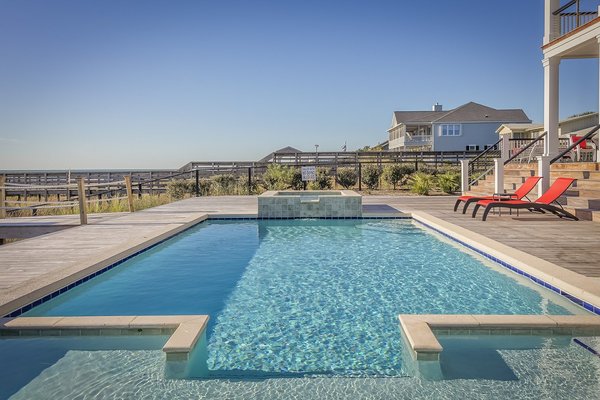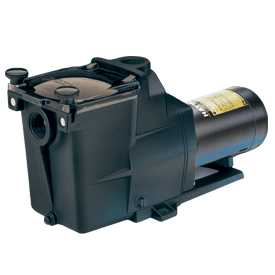HOW TO MAINTAIN A POOL PUMP MOTOR
March 15/2022
A pump can be likened to the heart of a swimming pool. Circulating the water is essential to a healthy, clean swimming environment. What can be done to protect the heart of your pool? You don't have to pay a professional to perform most of these simple tasks that can prolong the life of your pump. Let's consider how to maintain a pool pump motor so you can keep your pool looking amazing.

1. Empty the strainer basket often. This sounds like a no brainer, but it is often overlooked. A strainer basket that is clogged with leaves, hair or other debris can put a lot of strain on the pump motor. If the motor has to work harder to pump the water through debris it will likely be running hotter. A hot motor can cause the bearings to fail prematurely. After every vacuuming, or at least once a month, pull out the basket and rinse it with a garden hose. Even if it appears to be clean when you look in through the pump lid, there may be fine debris that is lining the basket. Clean the basket often and you will eliminate a potential problem.

2. Clean the motor vents. The electric motor has vents that allow air to pass through the motor which keeps it cool and prevents over heating. More often than not, these vents become plugged with lint and debris. Check these vents regularly and remove any lint or dust buildup that accumulates. Make sure the motor is turned off. Most times you can simply remove the lint with your fingers. You may also use an old tooth brush to get hard to reach places.
3. Watch for air in the pump. If too much air gets in the circulation system the pump can lose its prime and potentially burn out. Check that all plumbing connections or unions are tight. Inspect the pump lid o-ring to ensure that it is getting a proper seal. There should be no flat spots or cracks on the o-ring. You may apply a small amount of lubricant if necessary.
4. Fix leaks! If you notice a leak address it immediately. Ongoing leaks can allow chlorinated water to seep into the motor and cause the bearings or electrical components to fail. A small leak can easily lead to other problems if left unchecked. If you are handy you may attempt replacing the shaft seal yourself. Most times however, if the pump is leaking it might be wise to have a pool professional replace the seals for you. You will have peace of mind knowing it is done properly and it usually won't take them long.
Following these simple steps should help extend the life of your pool pump and could prevent unnecessary repairs. An average pump will last between 5 - 7 years, or longer, if properly maintained. If you do need to replace your pool pump consider investing in a variable speed pump. The energy savings can be as much as 80%. Variable speed pumps also last longer than single speed pumps because they run much cooler, and they will often pay for themselves within a couple years.
Happy swimming!